"I can tell you about tragedy...the tragedy for our economy, the tragedy for our communities, and the tragedy for people who are being laid off needlessly by this war on coal that is being perpetrated by the Obama EPA." That is how Mike Duncan, the new President and CEO of the American Coalition for Clean Coal Electricity (ACCCE), describes hostile energy regulation.
Duncan cites a recent analysis commissioned by ACCCE that links overreaching Environmental Protection Agency (EPA) regulation to the premature retirement of 204 coal units across 25 states. These closures represent a loss of 31,000 megawatts of electric generating capacity, equivalent to shutting down the entire electricity supply of Ohio.
The ACCCE study concludes that people at every level of the economy are being affected by the loss of low cost energy from coal, from energy sector workers and communities to energy-intensive manufacturers, struggling small businesses and consumers on tight budgets.
"The war on coal has a lot of casualties, and while there are some market forces at play, primarily the major force here is the overreaching, aggressive Environmental Protection Agency," says Duncan. "What I've seen out of this EPA is more politicization of coal. Now what does that mean? It means higher priced electricity for businesses, for manufacturing. It means that there is going to be a scarcity of electricity in some parts of this country. What we need is politicians who are looking out for the future so that we have coal around, which equals jobs and equals prosperity for all Americans."
Learn more about this topic at AmericasPower.org. Visitors can find information about how to join ACCCE's "America's Power Army" in support of coal at www.AmericasPower.org/join.
CITIZENS FROM COAST TO COAST COUNT ON COAL
"When you wake up in the morning and you don't have a job and your kids want ... it's a tough situation to be in," says West Virginia Coal Miner Rick Wartman in the new video from Count on Coal. "It's a shame that somebody has to beg to do an honest day's work."
That sentiment was echoed at a rally in Montana, where Montana Congressman Danny Rehberg said, "You can't overstate the importance of coal. One of the things we talk a lot about is the creation of jobs, but frankly what we need to be talking about is not only the creation of jobs but keeping the ones we've already got."
Presidential candidate Mitt Romney agrees, calling on the nation's leaders to use American coal to fuel America's economic comeback at a recent presidential debate and at another rally in Abingdon, VA, "I don't believe in putting our coal under the ground forever. I believe we should take advantage of it, put American workers back to work, and use a resource that's abundant and cheap and can be burned in a clean way."
"People wonder how they're going to have a brighter future if they can't see how they can make it to the end of the next month," he adds in a video entitled "The War on Coal." The video highlights how hostile government regulations on the coal industry prevent job creation, burden businesses and raise the cost of electricity in communities around the country. "We have 250 years of coal. Why wouldn't we use it?" Romney asks to rousing cheers.
AMERICAN ENERGY FUELS THE AMERICAN ECONOMY
"I think a lot of good things have come from coal," says Fox Business Network host Melissa Francis. "We're always talking about energy independence. We are the Saudi Arabia of coal; we have the largest recoverable reserves of coal anywhere in the world in this country. So to turn our back on this resource would really hobble our economy. What would that mean for jobs and suffering and people's health care?"
These comments come following Sierra Club's continued campaign to eliminate coal mining and coal use in America. Francis notes that Sierra Club gets it completely wrong: Coal offers an economic lifeline in fragile communities, "What they're ignoring is an entire part of all these communities who have jobs, who have economic viability, who have homes."
"The only growth to happen in these communities is because coal is there," says Mary Catherine Hamm, Editor-at-Large of HotAir.com. "There are a lot people hurting that Sierra Club is ignoring." Energy-costs for middle-class families have nearly doubled in the past decade at the same time many manufacturers have fled high-energy cost states and taken jobs and growth with them.
With the world's largest coal reserves, the United States has a clear source of relief for struggling consumers and employers. The coal industry currently adds $60 billion to the U.S. economy – an amount that can grow with policies that encourage greater domestic use and exports. For example, the recession-weary Pacific Northwest is weighing five proposed coal export terminals that could create thousands of jobs and inject billions of dollars into local and state economies. By exporting coal to other countries, America empowers itself.
"In order to have an economy, we must have energy," Hamm says. That's why Peabody is focused on providing affordable, abundant, American energy from coal to fuel the economy and create new jobs.
MISSOURI TOWN THRIVES AMID COAL TRAINS
With rising property values, top-ranked schools and a charming downtown, historic Kirkwood reigns as one of the premiere suburbs in the Midwest.
Kirkwood also is among the hundreds of small towns and large cities along the coal railway. The Kirkwood Train Station sits at the heart of town, and dozens of railcars zip through nine square miles of town daily, many carrying coal that will power the nation. Hauled by Burlington Northern Santa Fe and Union Pacific railroads, the coal trains roll past upscale restaurants and fine boutiques. Many million-dollar homes grace lots near the tracks.
Kirkwood's railway system is considered among the town's major attractions, with tourists and rail enthusiasts regularly gathering to watch trains roll by. It is a visible reminder that coal is both a source of vital fuel and local pride.
OLIVIA ALBRIGHT FUELS HER BUSINESS WITH COAL
Coal keeps Olivia Albright's family together.
Albright is the small-business owner of AOA Products, a small, Toledo, Ohio-based packaging company. At AOA, employees register as more than payroll numbers – they're a second family. "I treat them like my sisters," Albright says. "If they're not happy, I'm not happy."
And she credits low-cost coal with keeping everyone happy in a video from the American Coalition for Clean Coal Electricity. Electricity comprises 40% of AOA's operating costs, and each cent saved adds to the bottom-line. "Every piece of equipment in my shop runs on electricity, it needs to be plugged in; if it's not, it doesn't work," Albright says. "There would be some very hard decisions for me to make if the energy costs went up. I would have to let some of my employees go."
Coal-generated power is affordable, enabling AOA to maintain jobs and compete in challenging markets. Albright adds, "I want to give work to people, not take it away. So I need something that's going to be there, something that's affordable. Electricity from coal does that for me."


![Hcm Ax Landcros Press Release[32] jpg](https://img.oemoffhighway.com/mindful/acbm/workspaces/default/uploads/2025/11/hcmaxlandcros-press-release32jpg.mAEgsolr89.jpg?auto=format%2Ccompress&fit=crop&h=100&q=70&w=100)

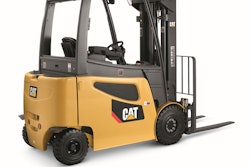

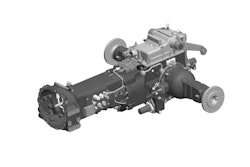
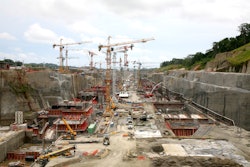
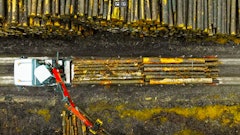
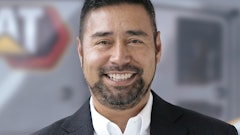
![Hcm Ax Landcros Press Release[32] jpg](https://img.oemoffhighway.com/mindful/acbm/workspaces/default/uploads/2025/11/hcmaxlandcros-press-release32jpg.mAEgsolr89.jpg?ar=16%3A9&auto=format%2Ccompress&fit=crop&h=135&q=70&w=240)







